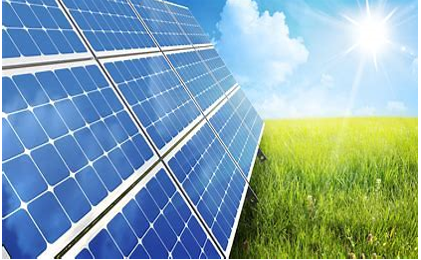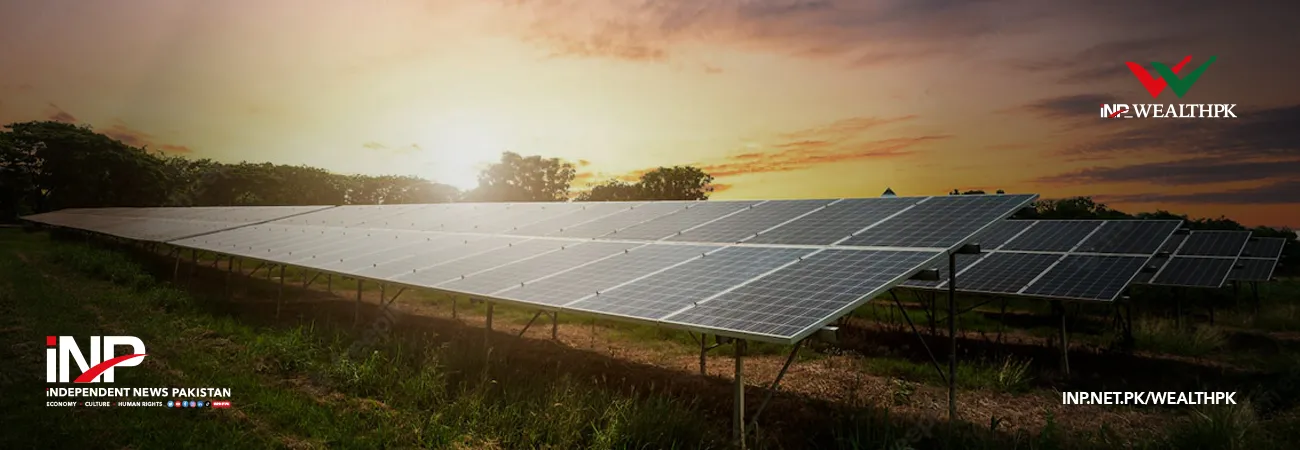i INP-WEALTHPK
Amir Saeed
The proposed General Sales Tax (GST) on imported solar panels risks halting Pakistan’s rapid solar adoption, threatening affordability and the recent energy transition gains, reports WealthPK.

The Pakistan Solar Association (PSA) has issued a strong appeal to the government, urging reconsideration of the proposed 18% GST on imported solar panels in the Federal Budget 2025–2026. The industry leaders warned that this tax could undo years of progress in making solar energy accessible and affordable for millions across Pakistan.
The solar sector has played a pivotal role in providing sustainable energy alternatives, reducing reliance on fossil fuels, and minimizing environmental harm. However, the PSA argues that the new GST will make solar installations prohibitively expensive for many households and businesses, undermining both climate goals and energy independence.
The PSA points out that Pakistan currently lacks large-scale or high-efficiency solar panel production facilities; the existing units only produce low-wattage panels that do not compete with the imported technology. As a result, the tax will not benefit the local industry but stifle a thriving green sector.
Talking to WealthPK, Chairman of PSA Waqas Moosa emphasized, “At a time when the world is accelerating toward clean and renewable energy, this tax will discourage solar adoption and harm our climate goals.” He warned that increasing the solar cost would make it less competitive than the fossil fuels like oil and petrol, which are environmentally damaging and contribute to Pakistan’s trade deficit.
The Association called on the policymakers to withdraw the proposed GST, urging support for policies that promote solar adoption, attract investment, and advance the country’s clean energy future. Talking to WealthPK, Afia Malik, an energy expert, said over the last two years, particularly since 2024, Pakistan has undergone an energy transition marked by a significant surge in photovoltaic (PV) solar capacity.
Malik added that it was primarily driven by the increasing grid electricity prices and falling solar panel prices. It won't be wrong to say that government interventions, including the net-metering policy and tax incentives on solar imports, propelled it.
“In addition to the net-metering capacity, which primarily serves three-phase customers, over 11GW (according to unofficial estimates) has been installed off-grid or behind the meter across not only large industries and agricultural tube wells but also low-middle-income and middle-income households, which are increasingly installing these panels.’’
The 2025 budget has imposed 18% GST on imported solar panels to support the local industry. However, she highlighted that it's uncertain if the local industry can meet the rising demand for renewable technology affordably. “If this does not happen, it will disrupt the flow of benefits of solar energy for middle- and lower-middle-income households that have only recently begun to enjoy them,’’ she said.
Credit: INP-WealthPk




